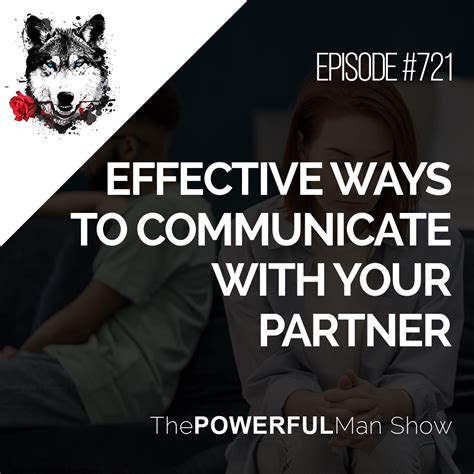Platonic male friendships, often celebrated for their camaraderie and shared activities, frequently face an invisible barrier when it comes to emotional depth. Underlying this challenge are deeply ingrained societal expectations about masculinity, which dictate how men are ‘supposed’ to behave, feel, and express themselves. These norms profoundly influence a man’s comfort level in both reaching out for emotional help and providing it to his friends, often leading to a landscape of surface-level connections rather than truly supportive bonds.
The Invisible Walls of Traditional Masculinity
Traditional masculinity often paints a picture of the ideal man as stoic, self-reliant, and emotionally impenetrable. From a young age, boys are subtly and overtly taught to suppress ‘feminine’ emotions like sadness, fear, or vulnerability. The phrase ‘boys don’t cry’ is just one example of the myriad messages that instill the belief that showing emotion is a sign of weakness. This cultural conditioning creates an internal ‘man box’ where expressing vulnerability can feel like a direct affront to one’s masculine identity, carrying the risk of social judgment or ostracization.
This emphasis on emotional restraint extends beyond personal expression to interactions with others. Men are often encouraged to solve problems independently, to be the ‘rock’ rather than someone who needs support. This foundational belief system sets a challenging stage for authentic emotional exchange within friendships, where the very act of needing help can be perceived as failing to live up to these rigid ideals.
The Stigma of Seeking Support
For many men, the thought of admitting to a friend that they are struggling emotionally can be fraught with anxiety. The fear of appearing weak, incapable, or burdensome looms large. They might worry that their friends will view them differently, perhaps with pity or scorn, or that they might simply not know how to respond effectively. This internal conflict between a genuine need for support and the ingrained fear of vulnerability often leads to men suffering in silence.
Instead of discussing feelings, men might resort to indirect forms of communication, hoping a friend will pick up on subtle cues, or they might intellectualize their problems, avoiding the emotional core. This reluctance isn’t a lack of desire for connection, but rather a deeply ingrained response to societal pressures that have taught them to equate emotional openness with a loss of status or control. The result is often increased isolation, even within a close social circle.

The Awkward Dance of Offering Support
The impact of traditional masculinity isn’t limited to seeking support; it also affects men’s ability to offer it. Having been discouraged from engaging with their own emotions, many men lack the language, tools, or comfort level to navigate another’s emotional distress effectively. When a friend expresses vulnerability, the response might be to offer practical solutions, change the subject, or resort to humor – anything to divert from the discomfort of sitting with raw emotion. This isn’t necessarily a lack of care, but often a lack of learned emotional literacy.
There can also be a fear of misinterpreting cues, saying the ‘wrong’ thing, or crossing an unspoken boundary of the ‘bro code’ that prioritizes lightheartedness and avoids deep emotional exploration. This creates a challenging dynamic where even well-intentioned friends might unintentionally shut down opportunities for deeper connection, reinforcing the idea that emotional talk is off-limits.

The Silent Toll: Consequences for Men’s Well-being
The cumulative effect of these societal expectations is a significant toll on men’s mental and emotional well-being. The suppression of emotions can lead to increased stress, anxiety, depression, and even anger. Without healthy outlets for processing feelings, men may resort to maladaptive coping mechanisms or experience a profound sense of loneliness, even when surrounded by friends.
Moreover, the inability to engage in deep emotional support limits the growth and resilience of male friendships. What could be a rich source of understanding, comfort, and shared humanity often remains an arena for shared activities, leaving a void where true emotional intimacy should reside. This superficiality prevents friendships from reaching their full potential, denying men access to a vital component of holistic well-being.

Redefining Strength: Breaking Down Barriers
Challenging these deeply ingrained norms is crucial for fostering healthier male friendships and improving men’s overall well-being. Redefining masculinity to include emotional intelligence, empathy, and vulnerability is a powerful step. This involves recognizing that true strength lies not in emotional suppression, but in the courage to be authentic and connect deeply with others. It means shifting the narrative from ‘don’t feel’ to ‘how do you feel?’
Encouraging open conversations, active listening, and normalizing discussions about feelings can gradually dismantle these barriers. This cultural shift begins with individuals making conscious efforts to model vulnerability, to ask probing questions beyond the surface, and to create safe spaces where friends feel genuinely heard and understood without judgment.

Cultivating Deeper Connections
Practically, cultivating deeper emotional connections in male friendships involves leading by example. This might mean sharing a personal struggle, even a small one, to test the waters and show that vulnerability is acceptable. It also means actively practicing empathy when a friend does open up – listening without immediately offering solutions, validating their feelings, and simply being present. Normalizing check-ins beyond casual greetings can also foster an environment where emotional health is a valid topic of conversation.
The benefits of breaking down these barriers are immense: stronger, more resilient friendships, improved mental health outcomes for men, and a more emotionally intelligent society. By consciously choosing to challenge outdated masculine ideals, men can unlock a profound level of support, understanding, and joy within their platonic bonds, enriching their lives in invaluable ways.





